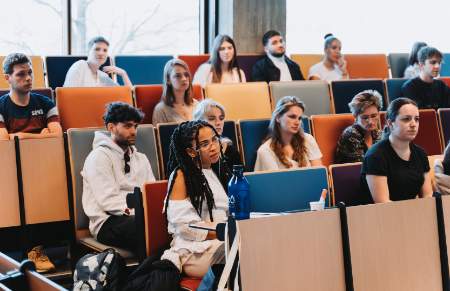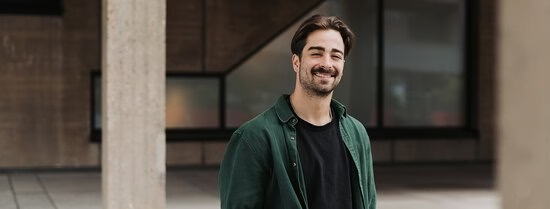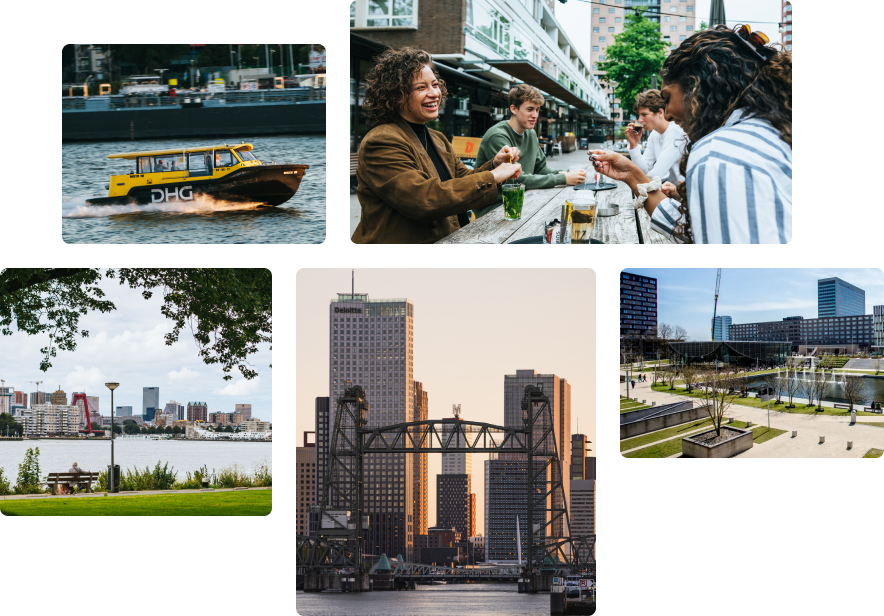Is deze studie iets voor jou?
Wil jij verandering gaan brengen in de culturele en creatieve industrie? Wil jij originele en goed doordachte ideeën bedenken over hoe je cultureel en creatief werk kan produceren, verspreiden en toetsen? Dan is de masterstudie Cultural Economics and Entrepreneurship aan de Erasmus Universiteit Rotterdam het perfecte programma voor jou.
Praktische informatie
- Type
- Master
- Diploma
- MA
- Vorm
- Fulltime | Parttime
- Voertaal
- Engels
- Tijdsduur
- 1 jaar
- Studiepunten (EC)
- 60
- Locatie
- Campus Woudestein
- Startdatum
- September
- Aanmelddeadline (EEA)
- 15 mei
Het studieprogramma in het kort
Het masterprogramma Cultural Economics and Entrepreneurship biedt een dubbel perspectief aan door zowel te kijken naar culturele economie, alsook naar cultureel ondernemerschap. We gebruiken perspectieven uit het veld van culturele economie en cultureel ondernemerschap om de gebruiken en waarde van cultuur voor verschillende belanghebbenden te ontrafelen, benadrukken, realiseren en toetsen. Op deze manier bevorderen we de rol van de culturele en creatieve sector in onze huidige samenleving. We leggen hierbinnen een grote nadruk op innovatieve theorie, origineel empirisch onderzoek en verbinding met de culturele en creatieve sectoren.
Tijdens de masterspecialisatie Cultural Economics and Entrepreneurship richt je je op de uitdagingen waar de culturele en creatieve industrie vandaag de dag, maar ook in de nabije toekomst, tegen aanlopen. Je gaat verschillende ontwikkelingen, uitdagingen en kansen binnen de context van culturele organisaties, creatieve bedrijven en ondernemers identificeren, plaatsen en vormgeven. Daarnaast biedt het programma veel mogelijkheid om verschillende onderwerpen te onderzoeken en ervaring op te bouwen met projecten in ondernemen.
"Culturele economie is niet iets dat je overal kunt vinden."

Dit ga je leren
- Je leert zowel een macro- als microbenadering te gebruiken om de context van specifieke culturele organisaties te begrijpen.
- Je leert overtuigende argumenten te formuleren binnen het financiële en economische kader van de culturele en creatieve sectoren en bestaande ideeën uit te dagen.
- Je leert alternatieve benaderingen te verkennen voor uitdagingen in de huidige economie, met een focus op de culturele en creatieve sector.
Meer weten? Ontmoet ons hier

Carrièremogelijkheden na je studie
Geef je carrière in de culturele en creatieve sector een vliegende start met de master specialisatie Cultural Economics and Entrepreneurship. Je kunt aan de slag in het hart van (internationale) culturele organisaties, overheidsinstellingen en bij NGO's of SME's, waar je nieuwe bedrijfsstrategieën kan ontwikkelen als PR-adviseur of beleidsmaker. Door je vermogen om de nieuwste economische theorieën toe te passen op langdurige culturele ontwikkelingen en trends, zijn jouw carrièremogelijkheden zeer divers.


